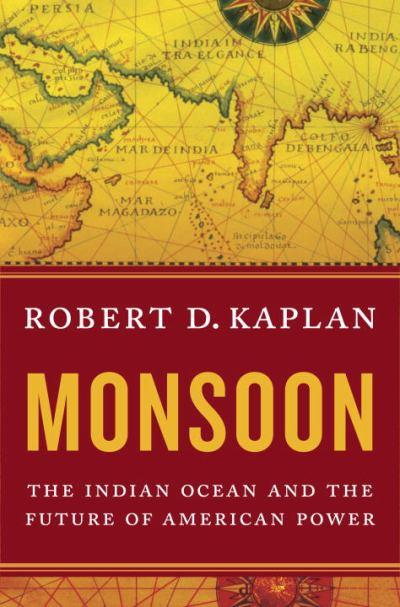
Book review: Monsoon. The Indian Ocean and the Future of American Power. By Robert D. Kaplan. Random House, 2010. 384 pages. R$ 27,29 (www.amazon.com.br)
In his 13th book, Robert D. Kaplan, correspondent for The Atlantic, claims that the Indian Ocean will turn into the new center of power in global politics and the stage for the “new Great Game” where global power dynamics will be revealed. The heart of the geopolitical world map will thus no longer lie in the Atlantic Ocean, as it has for the past centuries, but shift eastwards. Nearly 40 percent of the world’s seaborne crude oil passes through the Strait of Hormuz in the West of the Indian Ocean, the author notes, and on the other side, 50 percent of the world’s merchant fleet is anchored at the Strait of Malacca, turning it into the world’s most important trade route.
Kaplan thus argues that we need to adapt our traditional perspective, reflected in the design of our maps which usually puts the Western Hemisphere or Europe in the center. With his distinct informal style, mixing policy analysis with personal impressions and anecdotes, Kaplan pulls the reader into his vivid travel account, yet the book is rarely superficial. Kaplan begins his analysis in Oman, proceeds clockwise to the coasts of Pakistan, India, Bangladesh, Sri Lanka, Myanmar, Indonesia and finally Zanzibar.
He is particularly good at connecting realities on the ground with geopolitical implications, such as when visiting Gwadar, strategically located port city in the South of Pakistan, with the potential to turn into another Dubai yet strongly dependent on Pakistan’s political stability. His analysis is equally enlightening when he argues that the “frontier between Pakistan and Afghanistan is no frontier at all, but the heart of an Indo-Persian and Indo-Islamic continuum that straddled the high plateau of Central Asia for millennia.” Given his freewheeling approach, the author somehow achieves to reflect India’s mind-boggling diversity, ranging from his interviews in Gujarat to Delhi and Kolkata, and he identifies great hurdles India will need to overcome, such as sectarian violence – yet he also rightly observes that “India stands dramatically at the commanding center of the Indian Ocean”, which may provide it with crucial edge in the competition against China. In addition, Kaplan sees a great future for Indonesia, primarily due to its democratic credentials.
In the final section of the book, the author argues, similar to Kissinger in his recent book, that the emergence of a Post-Western World is inevitable, adding that the Indian Ocean will be the first region where this new situation becomes visible. The United States should then seek to assume the role of a “balancer” between the region’s most powerful actors. At the same time, Kaplan recognizes that US dominance will continue for some time, for example by pointing out that the United States still possess more than half of the world’s aircraft carriers.
Implications for Brazil
The developments described by Kaplan have important implications for Brazil’s role on the international stage. On the one hand, the process of multipolarization is a positive development, providing rising powers such as Brazil with more options to exercise influence. On the other hand, a geographical shift of power away from the Atlantic back towards the Indian Ocean will remove Brazil even further from the world’s most important regions. As Indian diplomats may well affirm, being close to the hotspots is not always easy, but it also allows India to project power in a locale with much greater relevance on a global scale than Brazil can aspire to for decades to come.
While Brazil’s role in the Indian Ocean is bound to remain small, it nevertheless needs to undertake a larger effort to strengthen its presence there. To some degree, the Cardoso administration initiated this trend successfully, diversifying ties after the end of the Cold War. President Lula continued and broadened Brazil’s outreach largely successfully, although his strategy vis-à-vis Iran stirred considerable controversy in the international community.
India and Indonesia, two emerging democracies, seem like ideal partners for Brazil. While Brazil-India ties are slowly gaining importance, Brazil and Indonesia remain as far apart as the geographic distance between them suggests. Brazilian academics, policy makers and policy analysts have yet to pick up on the topic. In this context, this book provides an excellent introduction into a region that is quickly turning into one of the principal stages of global affairs.
Read also:
Book review: “The future of Power” by Joseph Nye Jr.
Book review: “What does China want?” by Matias Spektor and Dani Nedal (orgs.)








